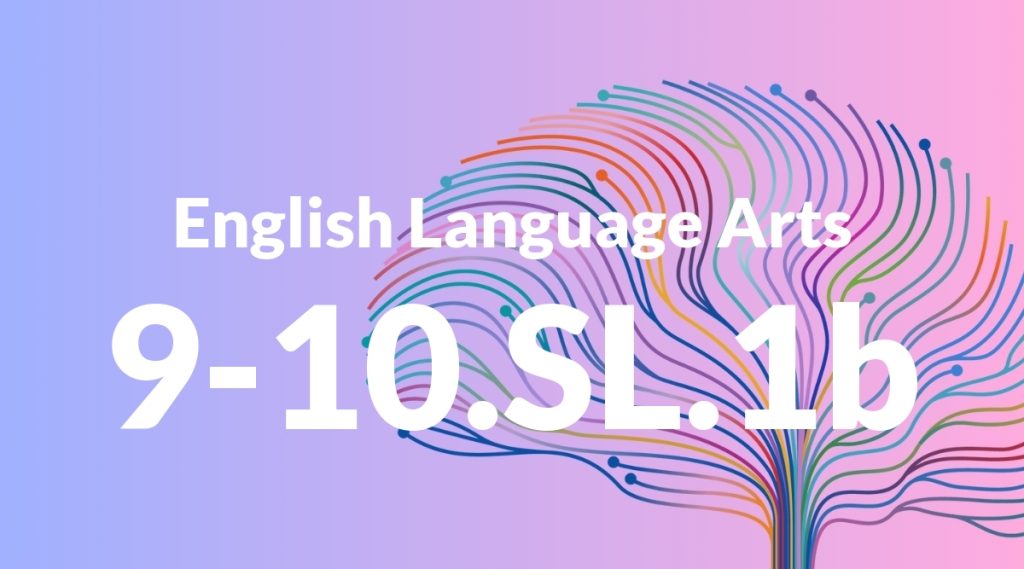Standard: 9-10.SL.1 – Initiate and participate effectively in a range of collaborative discussions (one-on-one, in groups, and teacher-led) with diverse partners on grades 9-10 topics, texts, and issues, building on others’ ideas and expressing their own clearly and persuasively.
Grade level: Grade 9-10
Subject: English Language Arts
Domain: Speaking & Listening
Teacher Overview
This standard emphasizes the importance of engaging in collaborative discussions, a critical skill in both academic and real-world contexts. By fostering effective communication, students learn to build on others’ ideas and express their own clearly and persuasively, preparing them for future academic endeavors and professional environments. Students should have a basic understanding of discussion protocols and skills in forming coherent arguments. They should also be comfortable with expressing their thoughts clearly and listening to others.
Mastering this standard will enable students to lead discussions, synthesize diverse perspectives, and present complex ideas persuasively, skills that are crucial for academic success and professional development.
Common Misconception 1
Some students may think that dominating the conversation shows effective participation. This is incorrect because effective discussions require a balance of speaking and listening, ensuring all voices are heard.
Intervention 1
Implement structured discussion formats, such as ‘think-pair-share’ or ’round-robin,’ to ensure balanced participation and teach the value of active listening.
Common Misconception 2
Another common misconception is that students must agree with others to participate effectively. This is incorrect because effective discussions often involve diverse viewpoints, which enrich the conversation and lead to deeper understanding.
Intervention 2
Create activities that encourage respectful disagreement, such as debates or ‘devil’s advocate’ exercises, to help students practice expressing differing opinions constructively.
Prerequisite Knowledge
Students should be familiar with basic discussion protocols, such as taking turns speaking, listening actively, and respecting different viewpoints. They should also have foundational skills in forming coherent arguments and expressing their thoughts clearly.
Subsequent Knowledge
After mastering this standard, students will develop advanced skills in public speaking, critical thinking, and leadership. They will be able to lead discussions, synthesize diverse perspectives, and present complex ideas persuasively in various settings.
Instructional Activities
- Classroom debates on current events
- Group projects with discussion components
- Peer reviews of written assignments
- Book club-style discussions
- Mock interviews or role-playing exercises




